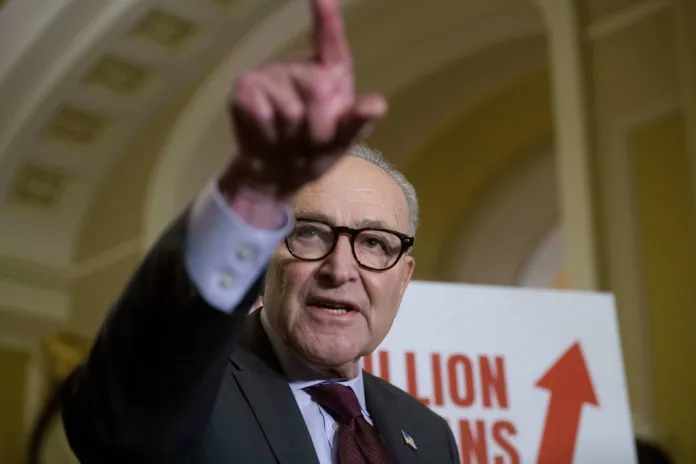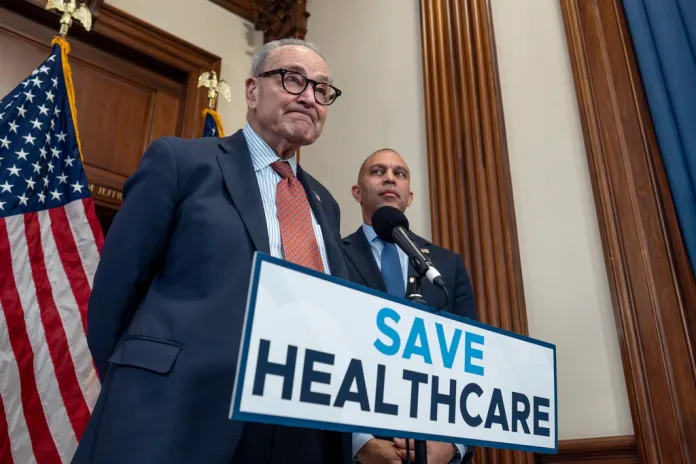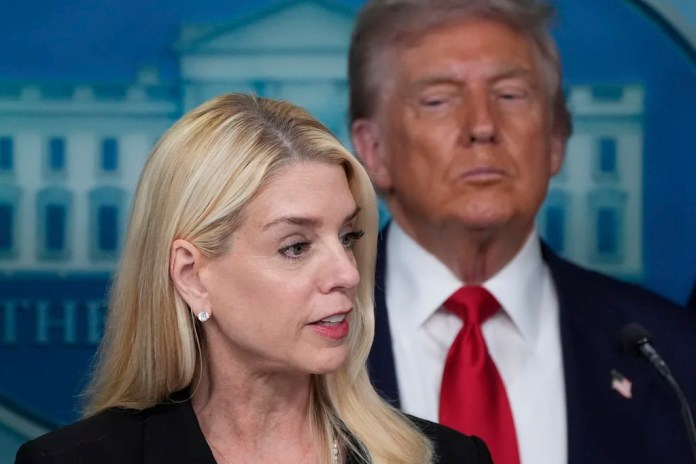Senate Democrats wage confirmation wars as Trump turns up pressure – Washington Examiner
The article discusses the current political climate in the Senate as Democrats face off against the Republican majority during the confirmation process for President Donald Trump’s Cabinet nominees. Drawing parallels too the confirmation battles of 2017,Senate Democrats are employing tactics such as delaying votes and raising objections to candidates they view as unqualified or problematic. Key nominees like John Ratcliffe for CIA director and Pete Hegseth for Secretary of Defense are under scrutiny, with Democrats highlighting concerns about their qualifications and character.
Senate Minority Leader Chuck Schumer indicated that while the democrats aim to oppose Trump’s controversial nominees, they are also committed to reassessing their strategies in light of the past election results, where Trump won the popular vote.The article notes that the upcoming confirmation battles will serve as opportunities for both parties to rally their bases—Democrats aiming to mobilize their supporters over the more contentious nominees, and Republicans eager to secure confirmations quickly.
The article also touches upon the logistical challenges and the necessity of completing FBI background checks for nominees. It emphasizes that although some delays might arise from political maneuvering, there are legitimate constitutional requirements for thorough review before confirmation votes can proceed. the confirmation process is set to be contentious and politically charged as both parties seek to assert their influence in the Senate.
Democrats wage confirmation wars as Trump turns up pressure on Senate
Senate Democrats are returning to the confirmation wars of 2017 as they attempt to find their footing in a new Republican majority.
Democrats are dragging out the confirmation process for several of President Donald Trump’s Cabinet nominees, even those with broad support.
Secretary of State Marco Rubio was confirmed unanimously on Monday, but another bipartisan nominee, John Ratcliffe, was blocked from becoming CIA director the next day as Sen. Chris Murphy (D-CT) raised “serious concerns” about whether he would politicize the agency.
Democrats also threw up roadblocks on the Senate floor to Pete Hegseth, the Trump Pentagon nominee embroiled in a sexual misconduct scandal.
“We can’t be aggressive enough, because these nominees are really, many of them, absolutely repugnant to the rule of law and to the need for qualifications and preparedness,” said Sen. Richard Blumenthal (D-CT), who teased further objections.
“We’ll see any and every kind of way we can raise these issues about competence,” he added.
The tactics are reminiscent of the ones taken the first time Trump entered the White House. At the time, Democrats homed in on eight nominees they would delay, with Senate Minority Leader Chuck Schumer (D-NY) warning against a “rushed” process.
Democrats boycotted committee meetings and clogged up the Senate floor with the sort of procedural hurdles seen on Tuesday.
The party was riding a groundswell of grassroots opposition to Trump after his surprise 2016 election, resistance exacerbated by his ban on immigrants from seven Muslim-majority countries.
But Democrats have been waging its current campaign in a period of greater reflection. Trump won the popular vote in 2024, the first Republican to do so in two decades, and swept all seven battleground states.
Schumer promised the party would assess the “things we did wrong” and course-correct without abandoning its core values.
That includes a softening posture on border security and recommitment to economic populism. But they have also sought to steady themselves with pointed opposition to Trump’s most controversial nominees.
On Wednesday, Schumer called Russ Vought, Trump’s choice for budget director, the “godfather of the hard Right” as he appeared for his second confirmation hearing.
Vought, first confirmed to the position in 2020, is an ally of the conservative Freedom Caucus and co-author of Project 2025, a blueprint Democrats used to paint Trump as extreme on the campaign trail.
The crux of their objections center on the qualifications of Trump’s nominees. Blumenthal, an Armed Services Committee member who opposes Hegseth, cited a new affidavit from Hegseth’s former sister-in-law alleging domestic abuse.
Hegseth and his ex-wife deny the allegations in the affidavit.
“We’re not seeking delay for the sake of just more time. We’re seeking more time so that we can raise issues about their competency and character,” said Blumenthal.
But Republicans have described the early delays as partisan obstruction and plan to keep the Senate in session through the weekend to confirm nominees like Hegseth.
“I hope my Democrat colleagues don’t have plans this weekend, because I guarantee you the Senate is going to be here, in Washington, voting to confirm President Trump’s nominees,” Senate Majority Whip John Barrasso (R-WY) said on Wednesday.
“Get ready for late nights and long hours,” he added. “We will be here on Thursday, on Friday, on Saturday, and on Sunday if we have to.”
Both sides ultimately benefit politically from the coming standoff over Trump’s Cabinet picks. Most nominees enjoy bipartisan support, but those who don’t provide an opportunity for Democrats to energize their demoralized base of voters.
For Republicans, Trump is the audience they care about most.
The president has expressed interest in Congress adjourning so he can name his Cabinet unilaterally, a dramatic step that would side-step the Senate’s advice and consent role. But Trump is content to let the process play out so long as Thune demonstrates he is moving aggressively.
“I think we’re going to find out here fairly quickly whether or not the Democrats want to help us,” Thune told reporters on Tuesday after a meeting at the White House.
Not all delays are related to political gamesmanship. Many of Trump’s nominees are waiting on FBI background checks and reviews from the Office of Government Ethics, with Democrats pointing to the late start Trump’s transition team got on paperwork.
“I know there’s a lot of partisan game-talking, but United States senators, as spelled out by the Constitution, should advise and consent, and I should have all the information about candidates before I ultimately take that vote,” said Sen. Cory Booker (D-NJ), the No. 4 Democrat in Senate leadership.
Republicans have in some cases held confirmation hearings without all the paperwork in hand, but other committee chairs have waited.
Tulsi Gabbard, selected to lead the intelligence agencies, is awaiting her confirmation hearing to be scheduled, as Democrats raise concerns about her fitness for office.
It has gotten harder for the minority party to oppose a president’s Cabinet nominees. In 2013, Democratic Leader Harry Reid eliminated the filibuster for everything but Supreme Court appointments, clearing the way for simple majority votes.
GOP Leader Mitch McConnell (R-KY) subsequently eliminated the filibuster for Supreme Court nominees once Republicans took back Senate control.
Nonetheless, Democrats can still force Thune to hold votes that begin and end debate, lengthening the floor time for each nominee to about a week.
They can also request that committees wait seven days after a confirmation hearing before reporting a nominee to the floor, as they’ve done with Pam Bondi, Trump’s pick for attorney general.
Republicans engineered their own campaign of resistance to President Joe Biden in 2021, delaying nominees like Homeland Secretary Alejandro Mayorkas from receiving a speedy vote.
They also blockaded his final judicial nominees at the end of last year until Democrats negotiated a deal that withdrew some of the more controversial judges.
But Republicans hope to get back to an earlier era of quick Cabinet approvals, with Thune invoking what he calls the “Obama standard” for nominees.
Both President Barack Obama and George W. Bush had seven of their nominees in place on Day One of their administrations.
“I think our determination is to do this: 2017, 2021 – is not the way the Senate should do business,” said Sen. Chuck Grassley (R-IA), the president pro tempore of the Senate.
“We should follow the practices that were in the George W. Bush administration and the Obama administration that people were confirmed, the vast majority of them, maybe a dozen, at least, within the first month, and that’s what we intend to do this time,” he added.
Republicans aspire to meet that objective despite the new era of partisanship. It took three months to get Trump’s Cabinet in place in his first term.
Meanwhile, they have attempted to catch Democrats off-balance as they recalibrate their party message for 2026.
Republicans successfully peeled off 12 Democrats in a vote on the Laken Riley Act, a bill to ease deportations for illegal immigrants charged with theft-related crimes.
They were unable to win any cross-over votes, however, on an abortion measure that failed to clear its first procedural hurdle on Wednesday. Democrats rejected the Born Alive Abortion Survivors Protection Act in a party-line vote, with Schumer arguing it “adds more legal risk for doctors on something that is already illegal.”
The bill, brought up ahead of the March for Life, would require care for a child born after a failed abortion.
" Conservative News Daily does not always share or support the views and opinions expressed here; they are just those of the writer."




